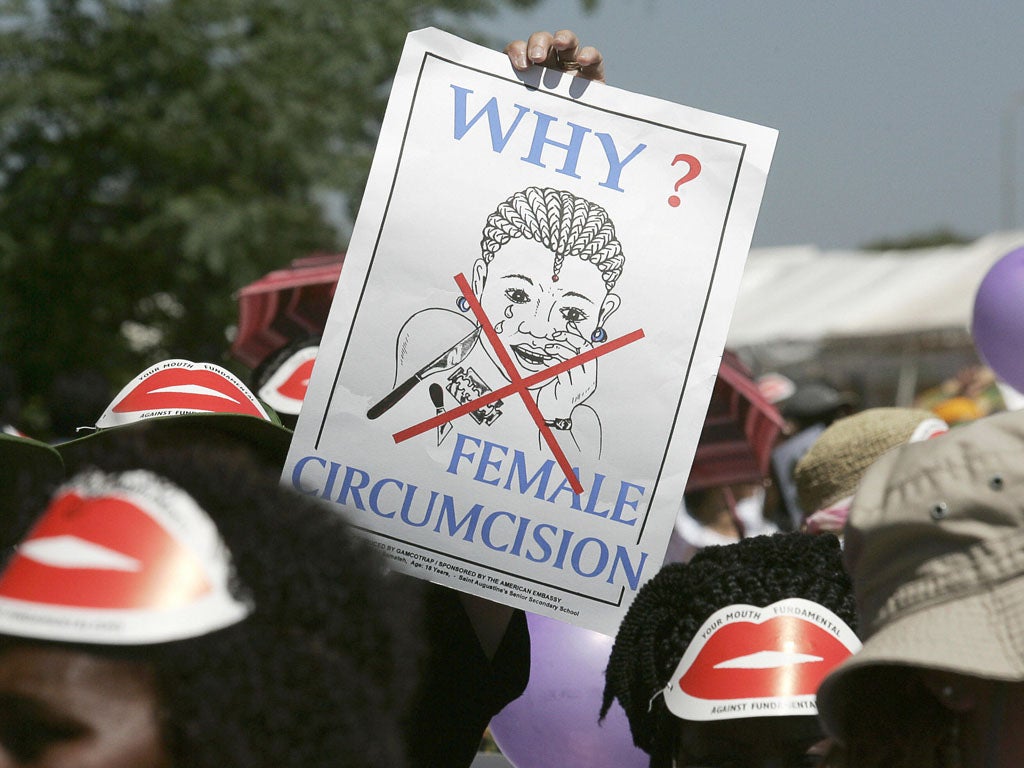FGM campaigner Fahma Mohamed awarded honorary doctorate at 19
Bristol University recognises teen for empowering young women and communities, and also influencing policies

A teenager is set to become one of the youngest doctorate-holders in the UK as the University of Bristol gears up to present her with the highly-coveted honorary degree.
Nineteen-year- old Fahma Mohamed, who has yet to begin her BA in biomedicine at King’s College London in September, will be given the Doctor of Laws on Friday in acknowledgement of her campaign work to end and assist victims of female genital mutilation (FGM), reports the Bristol Post.
Ms Mohamed embarked on her project, End FGM, in 2011 with Integrate Bristol, a local charity that aims to help young people from overseas to settle into life in the UK. Officially launched in 2014, Ms Mohamed’s campaign called on then-Education Secretary, Michael Gove, to write to all teachers in England and Wales, warning them of the dangers of FGM and offering advice on its prevention.
According to the campaign, Ms Mohamed made it clear to Mr Gove that it was time for him to “recognise his part in educating the professionals within the sector” if the brutal practice is to come to an end in Britain “once and for all.” The petition that was launched to coincide with the campaign attracted more than 230,000 signatures.

Integrate has described how the practice of FGM is “a horrifying reality” in the UK, adding that, although it is strictly illegal, the practice still continues and laws set in place to protect children “do not adequately ensure the protection of girls from practicing cultures.” Generally, the practice involves the removal or damage of a girl’s outer sexual organs and can result in infertility, infection and, in some cases, death.
According to the NSPCC, more than 1,700 victims of FGM were referred for treatment at specialist clinics between 2013 and 2015. However, that figure is tiny in comparison to the estimated 137,000 women in the UK who are living with some form of FGM.
Although the figures are still disputed - as many cases never come to the attention of the authorities - the campaign has been a great success, and Ms Mohamed was praised for her work both in Britain and abroad. She was also invited to the United Nations for a meeting with Secretary General Ban Ki-Moon.
Ms Mohamed was initially unaware of the sensitive subject. Talking about her time in secondary school, she told the Post: “We kept hearing about the charity and the work that was done there, but I had no idea what FGM was. I was even more shocked it was practised in Bristol - in Britain.”
She added she was “quite shy and reserved” to begin with, but quickly grew in the role: “I kept thinking about how helpless the girls were feeling and that was what motivated me to keep going.”
Speaking to the Independent, the University of Bristol pro vice-chancellor, Dr Erik Lithander, said it was “a privilege and honour” to be awarding Ms Mohamed with an honorary degree in recognition of her achievements at such a young age. He added: “Not only has she spearheaded a project that empowers young women and communities, but she’s been able to influence policies and even change laws.
“She’s a shining example and an inspiration to our own students, and we’re sure she’s going to excel when she starts university herself in September.”
Join our commenting forum
Join thought-provoking conversations, follow other Independent readers and see their replies
Comments
Bookmark popover
Removed from bookmarks